Top Photo: Some of the fourteen hooded mergansers in the wetlands at the end of December.
From mid-November to about the middle of April hooded mergansers are a common sight in our wetlands. Some days you may see a lone merg in the pond and other days there may be a dozen or more. The birds fly back and forth between local area ponds. But unless the pond is frozen over there’s bound to be a merganser or two present in our wetland on any given day in winter.
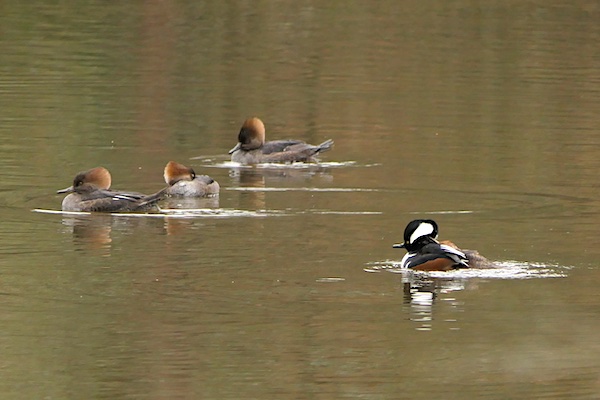
Hooded mergansers are fish eating ducks, but they also take aquatic insects, mollusks, tadpoles and crayfish from their watery habitat.
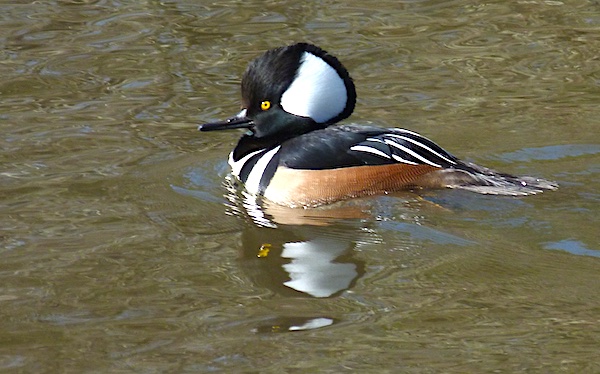
Male hooded mergansers are quite handsome in their black, white, and chestnut plumage. The crest on the head is the icing on the cake. Females are more subtle in their plumage but their copper-colored crests give them an elegance of their own.
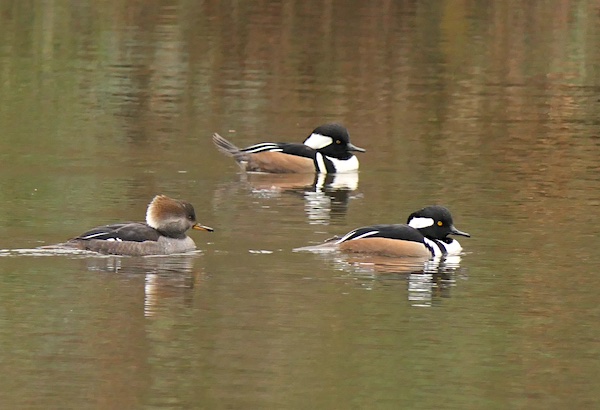
It can be difficult to distinguish between young males and females on the wintering grounds before the males molt into their adult plumage. Both wear a similar plumage but females have a lighter base to their bills and darker eye than young males, which have an all black bill and yellow iris. There are other differences, but those two characteristics are the easiest to pick out in the field.
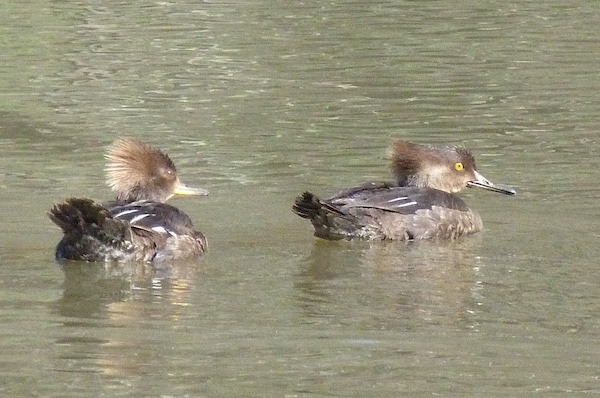

We’ve erected a nest box for the birds to use but so far there’ve been no takers. Hooded mergansers, like wood ducks, will use manmade nest boxes. We’re hoping they’ll use ours in the future. They’ve nested locally in the past at Sandy Creek Park here in Durham (SW-about 6 miles straight line from the museum). There’s no reason they can’t do the same here.
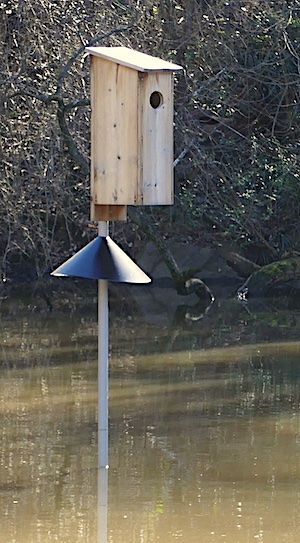
Ranger Greg